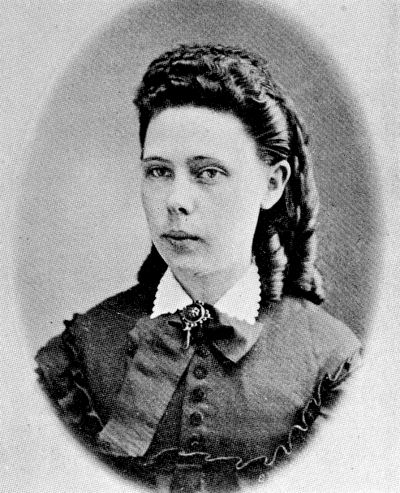This is a transcription of the Mary Helen Boodey biography from New Hampshire Women: A Collection of Portraits and Biographical Sketches of Daughters and Residents of the Granite State, Who are Worthy Representatives of their Sex in the Various Walks and Conditions of Life, The New Hampshire Publishing Co., Concord, NH, 1895, page 227.

Mary Helen Boodey
THE daughters of New Hampshire have had many worthy representatives among the verse-writers of America, none of whom has manifested a deeper insight into nature and the human heart with all its longing aspirations, or a closer touch with the Infinite, than Mary Helen Boodey, “the sweet singer of Laconia,” whose life song ended here, on the twenty-ninth day of April, 1880, but the pure, spiritual beauty of whose verse will touch the heart of the reader for many a year to come. Miss Boodey was born in Dover, December 11, 1847, and subsequently resided in Alton, but passed the greater portion of her life in Laconia, where her father, the late Jacob P. Boodey, whose death preceded hers but a few weeks, was many years register of deeds for the county of Belknap. Her poems, written at intervals from her fifteenth year till the close of her life, appeared in various publications in New Hampshire and Massachusetts, the first in the Boston Home Journal. The later productions of her pen, both in verse and prose, were presented through Ballou’s Monthly, of which she was an assistant editor from 1871 until compelled to retire from ill health. Although a strain of sadness often pervaded her verse, there was also a deep well-spring of joy in her soul, the stirring of whose waters by some tender emotion carried good cheer to other hearts, while her trust in the Eternal was ever-abiding, as strikingly manifest in the beautiful poem, “After I Die.” Her sensitive nature was burdened and oppressed by the sight and sound of the world’s harsh experiences, which eventually crushed out her young life; yet the same chord which shuddered and trembled at the cry of pain was as sensitive to the sweet note of the song-bird, and as easily attuned to joy as to sadness. It is the hope of many that the scattered productions of this sweet singer’s pen may yet be collected and preserved in enduring form. No worthier contribution could be made to the permanent literature of the state.

In Ballou’s monthly magazine, vol. XL.—No. 6, December, 1874, Mary Helen Boodey has a poem, page2. Page 1 is a full page woodcut of her.